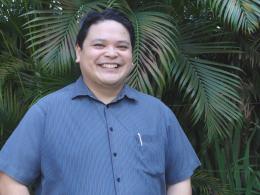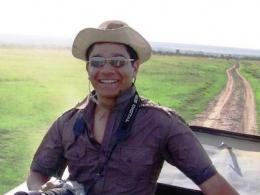Maria Ly is quite literally a Rock Star. You’ll often find her hanging off a 5.13a grade rock climbing route, she is the rock star co-founder of Skimble (which is incubated by Rock Health), and you can find her rock formation photography featured in Outside Magazine.
Resources
Avoiding "Foot In Mouth" Disease: Embarrassing Cultural Misunderstandings

It goes without saying that during your time as an international student you will be embarrassed, at least once, for making some statement or engaging in some misunderstanding that at the time appears (you think) incredibly unseemly to those in your host culture. Perhaps one day you get fed up with the fact that the restaurants in your host country won’t give you a free glass of tap water. You’re consistently forced to buy tiny bottles of bottled water for close to $3 a pop whenever you go out to eat, so one night you plead with your server just to give you a glass of water. He actually yells at you - and in a surprising breach of social convention - chides you with the statement “This isn’t America,” upon which you feel ashamed and embarrassed. But such a situation isn’t so uncommon for students abroad. Cultural misunderstandings are bound to arise when you’re overseas – but here are a couple things of you can do to minimize the fallout.
Just Ask
First things first – just ask. Yes, even if you don’t speak the language. You’re confused as to whether or not you’re going to get charged for the bread your server just set on the table? Swallow your embarrassment for being a foreigner who isn’t immediately “in the know” and ask. Can’t figure out if you’re supposed to order at the bar or if there’s table service? Just ask. Just asking will not only help you avoid the awkwardness of simply guessing and possibly doing something that goes against your host culture’s social conventions, it will also make you much more comfortable in similar situations in the future.
Do Your Research
In order to prepare for your experience abroad learn to converse in a very basic way with your host culture by finding how to say, at the least, hello, please, thank you, and goodbye. The last thing you want to do when entering a fine eating establishment in your host country is loudly greet your server in your native language and continue, throughout the meal, to prove your unwillingness to learn even the bare conversational essentials of the language. It is polite to make an attempt and the people of your host country will be much more receptive to you if they see you’re putting out the effort to learn at least a few of their words, especially when they’re putting out the effort to speak entirely in yours.

Pay Attention
Look around. Observe how the locals act in public. If you notice that shop owners consistently greet you when you enter and say goodbye when you leave, greet them and say goodbye to them in return. If you notice that people are generally softer spoken at restaurants and public places, keep your voice at a reasonable level as well. The point is simply to be aware of your surroundings and not appear like an inconsiderate isolated tourist seemingly incapable of taking notice of social conventions. This will earn you respect and understanding. People will be nice to you when they see that you are like them.
Use Your Available Resources
There are plenty of ways to learn about your host culture before traveling there. The StudentRoads community, guidebooks, and ambassadors from your host university are all great places to mine information about what’s okay and what’s not okay in your destination country. If you take the time to find out about what to expect before you leave you’ll be rewarded with a lot less confusion and misunderstanding and gain the security of knowing how to navigate a good amount of everyday situations you normally take for granted. If you follow all of these tips it will make you seem like a local in no time.
[Top image credit: Brand X Pictures/Thinkstock; Second image credit: iStockphoto/Thinkstock]
© 2012 StudentRoads. All rights reserved. Do not reprint without permission.






Add Comment